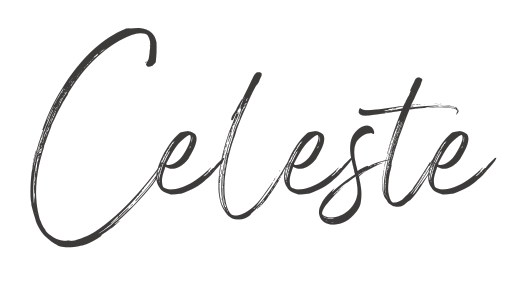Find Your 'Why': An Introduction to the 9 Enneagram Types

Have you ever found yourself pondering the deeper motivations behind your actions, the unseen forces that shape your decisions, and the persistent fears that occasionally hold you back? In a world constantly pushing us towards external achievements, the journey inward—to understand our core "why"—is often the most transformative. Self-awareness is not merely a buzzword; it's a foundational pillar for personal growth, healthier relationships, and a more fulfilling life.
For centuries, humanity has sought tools and frameworks to demystify the complexities of the human psyche. Among the most insightful and increasingly popular systems for understanding personality and motivation is the Enneagram. Far from being a simple personality test, the Enneagram is a dynamic map of nine distinct personality types, each driven by a unique core motivation, fear, and desire.
Developed and popularized in the 20th century, with significant growth in awareness during the 1970s, the Enneagram offers a profound lens through which to explore your inner world. It doesn't just categorize behavior; it delves into the underlying motivations that fuel those behaviors, providing a pathway to self-discovery, empathy for others, and a blueprint for personal and spiritual development. Let's embark on an introductory journey through the nine Enneagram types.
What is the Enneagram? Delving Beyond Behavior
At its heart, the Enneagram is a psychological and spiritual system that describes nine interconnected personality types. Unlike many other systems that focus on traits or observable behaviors, the Enneagram emphasizes the core motivation behind those behaviors. Each type is defined by a fundamental belief about what is needed to navigate the world, a core fear that drives their actions, and a core desire they strive to fulfill. This emphasis on "why" makes it an incredibly powerful tool for self-understanding and compassion towards others.
Understanding your Enneagram type isn't about boxing yourself into a label; it's about gaining insight into your habitual patterns of thinking, feeling, and acting. It illuminates your unique gifts, identifies potential blind spots, and offers specific pathways for growth. While each person primarily identifies with one type, often referred to as their "core type," we also experience characteristics of adjacent types (called "wings") and move towards other types under stress or security (known as "arrows" or "lines of integration and disintegration"), adding layers of complexity and dynamism to the system.
The Nine Enneagram Types: A Glimpse into Your Core Why
Type 1: The Reformer / Perfectionist
Core Motivation: To be good, right, and principled. Core Fear: Of being corrupt, evil, defective, or flawed. Core Desire: To be virtuous and have integrity. Ones are conscientious and ethical, with a strong sense of right and wrong. They strive for perfection, improvement, and order, both in themselves and in the world around them. While they bring integrity and a desire for justice, they can struggle with self-criticism, resentment, and a fear of making mistakes.
Type 2: The Helper / Giver
Core Motivation: To be loved and appreciated. Core Fear: Of being unworthy of love or unwanted. Core Desire: To feel loved. Twos are empathetic, caring, and generous, often anticipating the needs of others and offering support. They find joy in being needed and making a difference in people's lives. However, they can sometimes neglect their own needs, become people-pleasers, and struggle with passive-aggression when their generosity isn't reciprocated.
Type 3: The Achiever / Performer
Core Motivation: To be valuable and admirable. Core Fear: Of being worthless or failing. Core Desire: To feel valuable and worthwhile. Threes are success-oriented, adaptable, and driven. They are image-conscious and strive to present a competent and accomplished persona to the world. They are often charismatic leaders who inspire others, but they can struggle with authenticity, overworking, and a fear of being seen as anything less than perfect.
Type 4: The Individualist / Romantic
Core Motivation: To find themselves and their significance. Core Fear: Of having no identity, being inadequate, or being without personal significance. Core Desire: To find themselves and their significance, to create identity. Fours are introspective, expressive, and deeply emotional. They value authenticity, uniqueness, and beauty, often seeing themselves as different from others. They bring creativity and a rich inner life but can struggle with melancholy, envy, and feeling misunderstood or flawed.
Type 5: The Investigator / Observer
Core Motivation: To be capable and competent. Core Fear: Of being useless, helpless, or incapable. Core Desire: To be capable and competent. Fives are analytical, perceptive, and self-sufficient. They seek to understand the world through knowledge and observation, often retreating to conserve their energy and process information. They are visionaries and independent thinkers but can struggle with detachment, social withdrawal, and hoarding resources.
Type 6: The Loyalist / Guardian
Core Motivation: To have support and guidance. Core Fear: Of being without support or guidance, or of being unable to defend themselves. Core Desire: To have support and security. Sixes are responsible, committed, and security-oriented. They are always scanning for potential problems and seeking reliable allies and structures. They are excellent problem-solvers and loyal friends but can struggle with anxiety, skepticism, and indecisiveness, sometimes seeing the worst-case scenario.
Type 7: The Enthusiast / Adventurer
Core Motivation: To be happy and satisfied. Core Fear: Of being deprived, trapped in pain, or limited. Core Desire: To be satisfied and content. Sevens are optimistic, spontaneous, and versatile. They seek new experiences, adventures, and possibilities, driven by a desire to avoid pain and boredom. They bring joy and an infectious zest for life but can struggle with impulsiveness, commitment issues, and an inability to deal with discomfort or deeper emotions.
Type 8: The Challenger / Protector
Core Motivation: To protect themselves and control their environment. Core Fear: Of being harmed or controlled by others. Core Desire: To protect themselves and be in control of their own life. Eights are powerful, assertive, and protective. They value strength, justice, and autonomy, often taking charge and defending the vulnerable. They are natural leaders who inspire courage but can struggle with anger, confrontation, and a need to dominate, fearing vulnerability.
Type 9: The Peacemaker / Mediator
Core Motivation: To have inner stability and peace. Core Fear: Of loss and separation. Core Desire: To have peace of mind. Nines are agreeable, receptive, and supportive. They seek harmony and avoid conflict, often merging with others' opinions to maintain peace. They are calming presences and excellent mediators but can struggle with passivity, indecisiveness, and neglecting their own priorities and needs.
Conclusion: The Journey of Self-Discovery
The Enneagram is more than just a description of personality; it's a powerful tool for self-observation, personal growth, and fostering empathy. By understanding your core type and the motivations that drive you, you can begin to make conscious choices that lead to greater self-acceptance, healthier relationships, and a more purposeful life. This introduction merely scratches the surface of the Enneagram's depth, which encompasses detailed pathways for growth, integration, and a deeper understanding of human nature. Embrace this journey, and you may just find the "why" that unlocks your fullest potential.
Curious about your Enneagram type and how it shapes your life? Chat with Celeste for a complimentary Enneagram typing session.




